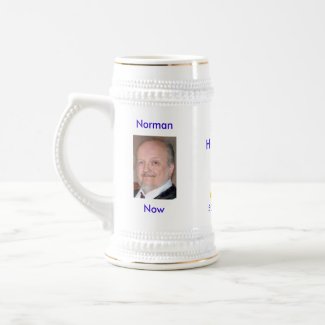We Spoke Dutch
Welkom bij
ons dorp! Some elements of our village
history need to be placed in sharp relief in order that we of modern
generations can grasp the actual nature of our civic ancestors and the nature of
our colorful old village. One
realization that would seem to be obvious, but may escape our understanding, is
that in the Village of Second River, we spoke Dutch not English ! Even those with only a rudimentary knowledge
of our town’s history know that we were a Dutch colony settled by pioneers
moving in from Dutch New Amsterdam, but somehow we fail to connect the dots. We
somehow fail to comprehend that in order to move about in our village, we had
better be speaking Dutch. Whether at
church, at town meetings, at the market, in school or on the streets of the
village while waving a friendly greeting to passing neighbors, Dutch, not
English, was the language of the people. Since the two most prosperous colonies
of the mid-Atlantic region, New York and New Jersey, were both Dutch in origin,
the village elders saw no reason to change their speech as neither business,
nor religion, nor friendly exchanges required the use of any other language.
The
younger generation, many of whom had learned English as well, were pressing the
elders to change the common language to English. Since the end of the Third Anglo-Dutch War
when the colony was ceded to England, English was the language of the
Proprietor's government and of the courts, but the elders would not hear of
it. The Rev. Geraudus Haughhort, the
most powerful man of village colonial history, failed in every attempt to
persuade the proud, stubborn Dutch to “get modern” and learn English.
Haughhort, himself, prominent in both politics and religion, not only in the
village, but throughout the mid-Atlantic region, was fluent in both
languages. His attempts to render Sunday
sermons in English were soundly rejected by the elders. His argument that the
colony was now English and was never likely to be Dutch again, fell on deaf
ears. In spite of Haughhort's best
efforts, it would fall upon one of his successors to make English the
"official" language of the village.
During the
Revolutionary War, in which our village played an exalted role, although English
could now be frequently heard, Dutch was still the predominent language
throughout the community. It would fall
upon the strong-willed Rev. Peter Stryker to bring about the necessary change
so that “Goedemorgen” would be replaced by “Good morning” on our village
streets.
Rev. Peter
Stryker was the spiritual leader of the community from October of 1794 until
October of 1809. Among his many accomplishments during fifteen years in the
community, Rev. Stryker was the first to conduct all activities only in the
English language. Gerardus Haughhort had
tried in vain to change the common language of the village; Peter Stryker would
succeed. It was time for the village to speak
English. Most of the younger generation already did. The community was leading the way in the
American Industrial Revolution; the old Dutch language needed to be phased-out.
Rev.
Stryker accommodated the elders by offering private sermons and other rites of
the church in Dutch in their homes,
however, English was now the only language you would hear in the old Dutch
Church. In 1797, at a meeting of the
town council at which the Village of Second River became Belleville, all of the
proceedings were in English. This would
have been a natural occurrence in any event since all official dealings with
the Colonial Government, and later the State Government, had to be in English,
but it must be said that our civic ancestors did not give up their beloved
Dutch language without a stubborn fight, such that is was not until the first
days of the 19th Century that the Dutch language disappeard from our village
streets, only to be heard among the very oldest village citizens.
Perhaps we
moderns, just for fun and old-times-sake, might greet a neighbor in passing on
Washington Avenue with a cheery, “Goedemorgen” to which he might reply, “En
hetzelfde voor jou”.






























